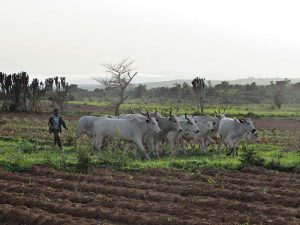
At least 85 Christians have been killed in a wave of coordinated attacks in Benue state, central Nigeria, during the span of a week, as insecurity continues to escalate across the Middle Belt region.
On Sunday, June 1, armed groups attacked communities in Gwer West and Apa counties, killing at least 43 people. The attackers, described by authorities and locals as Fulani ethnic militias, reportedly arrived in a convoy and struck Tse Antswam near Naka town and Edikwu-Ankpali in Apa at about 7 p.m.
Days earlier, similar attacks across several villages in Gwer West led to 42 deaths and the displacement of hundreds of residents. The targeted communities lie within Nigeria’s Middle Belt, a region often marked by competition over land, water, and political representation between predominantly Christian farming populations and largely Muslim nomadic pastoralist groups, including Fulani herders.
In Tse Antswam, located near the Local Government Education Authority (LGEA) primary school and a federal dam project, 17 bodies were recovered following the raid. Displaced residents have since taken refuge at the school, where local vigilantes and police are offering security assistance.
Patrick Modoom, a local community leader, said that 14 of the 15 political wards in Gwer West have been attacked during the past year.
“The attack happened close to a military checkpoint, but no response came from the soldiers,” he said. “People were left to defend themselves.”
In Apa County, 16 people were confirmed dead in the Edikwu and Ankpali communities, according to Abu Umoru, a member of the Benue State House of Assembly. Umoru said that several residents remain unaccounted for, and community members are conducting searches to determine the full extent of the casualties.
The violence in Benue came just one day after the abduction of 14 women along Owukpa Road. The women, traveling in a Benue Link transport bus from a market in Enugu state, remain missing. Their whereabouts are unknown. As of the time of reporting, the Benue State Police Command has not issued a statement on the attacks.
Fulani militias, often referred to as armed herders by security experts, are loosely organized groups reportedly composed of young men from the Fulani ethnic group — a traditionally nomadic people who span West and Central Africa. While many Fulani herders live peacefully across Nigeria, some factions have reportedly formed armed militias against Christians, particularly in the country’s Middle Belt, where disputes over land use and grazing routes have turned violent. These militias are distinct from the broader Fulani population and operate largely outside traditional leadership structures.
Since May 2023, at least 10,217 Nigerians have been killed in violent incidents nationwide, according to data compiled from civil society organizations and media reports. Amnesty International Nigeria reports that more than 6,896 of those killings occurred in Benue state, with Plateau state accounting for at least 2,630.
In the same report, Amnesty stated that “672 villages have reportedly been sacked in Benue, Plateau, and Kaduna States alone,” with many of the affected communities being Christian-majority farming settlements. The violence has contributed to large-scale internal displacement and increased tensions over land occupation, resource access, and political control. Plateau State Governor Caleb Mutfwang referred to the attacks as not a clash between Muslim herders and Christian farmers, but as a “genocide.”
The humanitarian consequences are mounting. Thousands of displaced people are taking shelter in schools, churches, and open fields with limited access to necessities, such as clean water, food, and medical services. Relief efforts remain sparse, and local aid providers say they are overwhelmed.
A letter from a local adult organization, Benue Concern Youths, addressed to Benue State Governor Rev. Fr. Hyacinth Alia, conveyed the frustration among affected communities.
“Innocent lives have been lost once more,” the group’s spokesperson, Unaji Pax Romana, wrote. “We look to you for leadership and hope.”
The areas most affected by recent violence include Gwer West, Guma, Logo, Agatu, and Apa counties — locations that have experienced repeated attacks during the past five years. Naka town, previously regarded as a haven, is now among the latest communities affected.
No arrests have been reported in connection with the recent attacks, and investigations into the identity and affiliations of the perpetrators are ongoing.
This story was culled from the website of the International Christian Concern.


